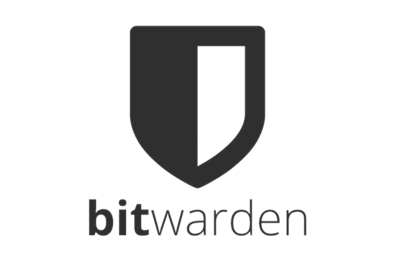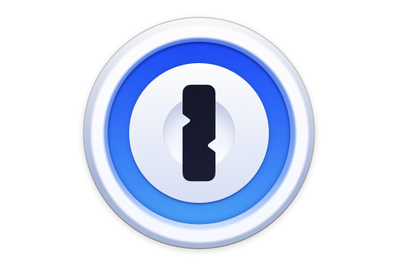Have you ever found yourself staring blankly at the password field, struggling to remember that complex string of letters, numbers, and symbols you swore you’d never forget? It’s a common experience in our digital age, where each online account requires unique and secure passwords. Thankfully, there’s a solution that can save you time, frustration, and even potential security breaches: password managers.

This image is property of d34mvw1if3ud0g.cloudfront.net.
Purpose of Password Managers
Password managers are designed to securely store and manage your passwords for all the various online accounts you have. Rather than relying on your memory or writing them down in a place where they can easily be lost or stolen, a password manager provides a safe and secure environment for your login credentials. This not only increases convenience but also enhances your overall online security.
Why You Need a Password Manager
In the modern online landscape, you likely have numerous accounts—from social media platforms to online banking. Each requires its own password, which can become overwhelming. Without a password manager, you may be tempted to recycle passwords, putting your accounts at risk. With the help of a password manager, you can create strong, unique passwords for each account without the stress of trying to remember them all.
Key Features of Password Managers
When selecting a password manager, it’s essential to consider the features it offers. Here are some key functionalities you should look for:
Encryption
One of the most crucial features of a password manager is encryption. High-level encryption ensures that your stored data is protected from unauthorized access. This means even if someone manages to breach the service’s security, your passwords remain safe and unreadable without your master password.
Auto-Fill & Auto-Generate
Imagine breezing through login pages without having to type your password each time. Password managers can automatically fill in your passwords for you, saving you precious seconds on every login. Moreover, they can generate secure, random passwords that adhere to best practices, making it easier to maintain strong security hygiene.
Cross-Platform Support
With the multitude of devices available today, a password manager must offer cross-platform support. Whether you’re using Windows, macOS, iOS, or Android, you should be able to access your passwords seamlessly across all your devices. This feature ensures that no matter where you are, your important login information is always at your fingertips.
Password Sharing
Sometimes, you might need to share a password with a trusted friend or family member. A good password manager includes a secure way to share credentials without compromising security. This allows you to collaborate on projects or manage accounts together while still keeping your passwords safe.
Security Audits
Regularly checking your passwords for strength and compromised accounts is necessary for maintaining online security. Many password managers offer features that can audit your passwords, alerting you to weak or reused ones. This proactive approach helps you bolster your security before any breaches occur.

This image is property of cdn.thewirecutter.com.
Popular Options
With many password managers available on the market, it can be challenging to choose the right one for your needs. Here’s a closer look at some of the most popular options.
LastPass
LastPass is one of the most well-known password managers, famous for its user-friendly interface and cross-platform compatibility. It offers both free and premium versions, making it accessible for everyone. Key features include password generation, secure sharing, and dark web monitoring—keeping you aware of any breaches related to your accounts.
1Password
If you’re looking for strong security features without sacrificing usability, 1Password might be the right choice for you. Its zero-knowledge encryption ensures that your data is only accessible with your master password. You’ll also appreciate the travel mode, which protects sensitive information while you’re on the go.
Dashlane
Dashlane provides an array of features, including a built-in VPN for added security when browsing public Wi-Fi networks. Besides password management, Dashlane excels with its identity theft protection service, which scans the web for any signs of your personal information being compromised.
Bitwarden
For those who prefer an open-source solution, Bitwarden is a fantastic and affordable choice. It provides robust security while keeping costs low and offers a clear, straightforward user experience. Plus, you can self-host it if you want complete control over your data.
Keeper
Keeper takes a strong focus on security, offering advanced features such as secure file storage and password auditing. It also provides multiple two-factor authentication options, ensuring that even if your master password is somehow compromised, your accounts remain protected.
Recommendations for Choosing a Password Manager
Choosing the right password manager depends on your specific needs and preferences. Here are some factors to consider:
Pricing
Look into the pricing models of different password managers. Many offer free versions that may have limitations, while paid versions often come with additional features. Determine what you can afford and what features you truly need.
Features
Consider the features that matter most to you. Do you require strong encryption and security audits? Are you looking for advanced sharing options? Make a list of must-have features and compare different options based on those requirements.
User Interface
One of the most important aspects of any software tool is usability. A user-friendly interface will make your experience much more enjoyable. Take advantage of free trials when available to see which password manager feels most intuitive to you.

This image is property of d34mvw1if3ud0g.cloudfront.net.
Enhancing Your Security Practices
In addition to using a password manager, consider adopting a few best practices to further enhance your online security.
Regularly Update Passwords
Changing your passwords regularly can prevent unauthorized access to your accounts. It may seem inconvenient, but doing so can ensure that even if a password gets compromised, it won’t be exploitable for long.
Use Two-Factor Authentication
Adding another layer of security through two-factor authentication (2FA) is a game-changer. Even with your password compromised, 2FA requires another method of verification, such as a code sent to your phone. This extra step makes it significantly harder for anyone to gain access to your accounts.
The Bottom Line
In a world where digital security is becoming increasingly essential, password managers are invaluable tools for ensuring safe and efficient online management of your credentials. By securely storing your passwords and simplifying the log-in process, a password manager can significantly enhance your online security and streamline your password management practices.
As you consider which password manager to choose, weigh the different options based on your preferences, and don’t forget to adopt best practices for online security. With a robust password manager at your side, you can navigate the digital landscape with greater confidence and peace of mind.

This image is property of cdn.thewirecutter.com.